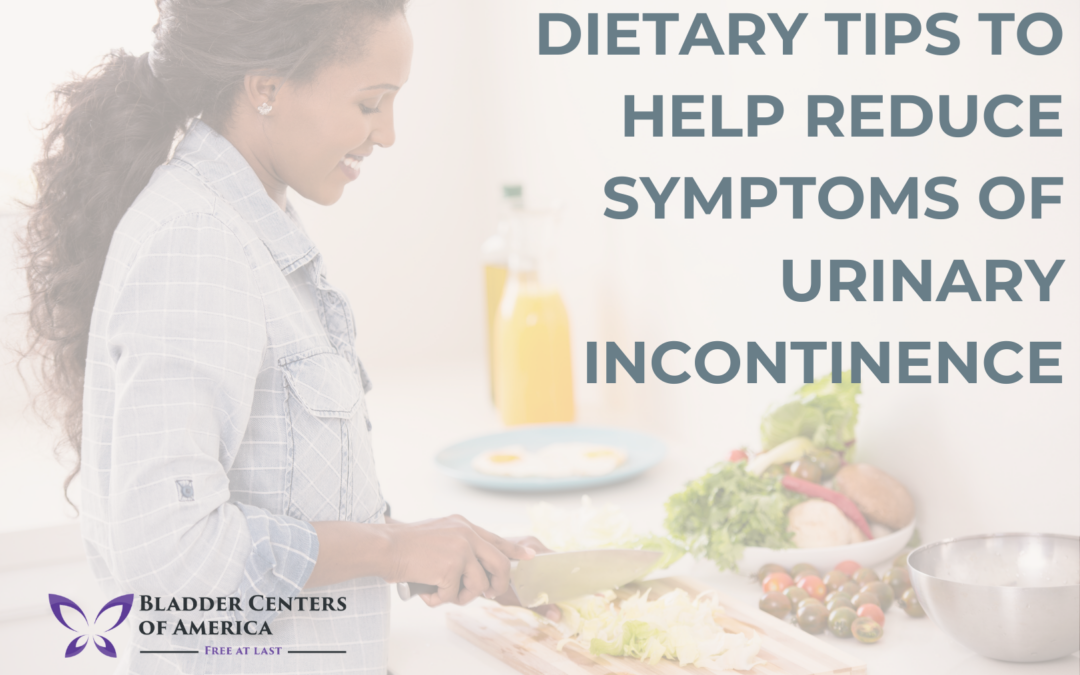Eating certain foods and avoiding others is an important part of managing symptoms of urinary incontinence. Foods high in fiber, such as fruits, vegetables, legumes, and whole grains are recommended to help improve bladder control. Low-fat dairy products contain compounds that moderate the speed at which urine flows out of the body.
Caffeinated beverages should be avoided as caffeine is known to irritate the bladder and exacerbate symptoms of urinary incontinence. Additionally, avoiding salty and acidic foods can help reduce the urgency and frequency of urination. By following these dietary tips, people suffering from urinary incontinence may experience some relief from their symptoms.
What is urinary incontinence and how does it affect people?
Urinary incontinence is a medical condition in which the patient experiences an involuntary loss of urine. It is most commonly caused by damage to urinary muscles, weakened bladder muscles due to age, or changes in hormones after menopause.
Symptoms can vary from person to person depending on the underlying cause, but it often results in urgency and frequency of urination, sudden urge to urinate, and involuntary leakage of urine.
Urinary incontinence can be an embarrassing and uncomfortable condition for those affected. Coincidentally having a significant impact on their quality of life. Fortunately, there are many ways to alleviate the symptoms including dietary modifications, lifestyle changes, and medications.
Causes of Urinary Incontinence
Urinary incontinence can be caused by several factors, including age, pregnancy and childbirth, obesity, specific medications, and many medical conditions. It is important to identify the underlying cause to effectively manage urinary incontinence.
For instance, if the condition is due to age or obesity, then diet and exercise modifications may help reduce symptoms. If the cause is certain medications or medical conditions such as diabetes or multiple sclerosis, then talking with a doctor about treatment options may be necessary.
Regardless of the underlying cause, it is important to consult a healthcare professional before making any changes to lifestyle or diet to properly manage symptoms of urinary incontinence.
Diet and Lifestyle Changes
Making dietary and lifestyle changes is essential to reducing the symptoms of urinary incontinence. Many people with the condition find that drinking fewer liquids, avoiding certain foods and beverages, and maintaining a healthy weight can all help reduce symptoms.
Additionally, exercising regularly, practicing bladder control exercises or yoga, and avoiding sugary snacks can also be beneficial in improving bladder control. For those with severe cases of urinary incontinence, taking medications or undergoing further treatments may be necessary. It is important to speak with a healthcare professional to determine which course of action is best for each person.
Foods to Avoid to alleviate symptoms of urinary incontinence
People with urinary incontinence should avoid consuming high-sodium, acidic, and caffeine-containing foods as well as alcoholic beverages. These types of food and drinks can irritate the bladder and worsen symptoms of incontinence.
Some of the most common culprits include tomato juice, citrus fruits and juices, chocolate, onions, tomatoes, spicy foods, carbonated drinks, and alcohol. Additionally, it is important to be aware of the number of fluids consumed throughout the day to avoid large changes in bladder pressure that may trigger episodes of incontinence.
Foods to Include
Eating more fiber-rich fruits and vegetables, lean proteins, low-fat dairy foods, and whole grains can be beneficial in reducing the symptoms of urinary incontinence. These types of foods are known to improve bladder function, stabilize blood sugar levels throughout the day, and help maintain a healthy weight.
Additionally, eating foods that are high in fiber is especially helpful for managing symptoms of incontinence. Fiber helps absorb liquid and reduces episodes of urge or stress incontinence. Foods that are naturally rich in fiber include legumes, oats, nuts, quinoa, raspberries, and plantains.
Supplements
Supplements are often recommended to help with urinary incontinence. Some of the most common supplements used to treat this condition include probiotics, vitamin D, omega-3 fatty acids, and cranberry extract. Probiotics can help balance bacteria in the digestive system, which may reduce bladder irritation and inflammation.
Vitamin D helps keep muscles relaxed and functioning properly, which can also help manage symptoms. Omega-3 fatty acids reduce inflammation in the body, while cranberry extract assists in controlling bacteria levels in the bladder. While there is much evidence that these supplements can be beneficial for those suffering from urinary incontinence, it is important to speak to a doctor before starting any supplement regime.
Exercise & Stress Relief
Exercise can be a great way to help improve bladder control and reduce the frequency of sudden urges. Pelvic floor exercises such as Kegels can strengthen the muscles used for controlling the bladder and may help manage symptoms.
Additionally, aerobic exercise is beneficial as it increases blood flow to the pelvic area which helps relax the muscles and eliminate symptoms. Stress relief is also important when dealing with urinary incontinence as stress triggers can cause sudden urges and an increase in episodes. Practicing relaxation techniques such as deep breathing and mindfulness can help reduce these episodes and provide some much-needed relief.
In the end, some various supplements and exercises can be used to help strengthen the muscles associated with bladder control and reduce frequent urges due to urinary incontinence. Probiotics, vitamins, omega-3 fatty acids, and cranberry extract can all have a beneficial effect on symptoms.
Additionally, practicing pelvic floor exercises as well as aerobic exercises can also help manage symptoms. Lastly, stress relief is important when dealing with this condition as it can trigger sudden urges. Relaxation techniques such as deep breathing and mindfulness can help reduce these episodes and provide relief.

